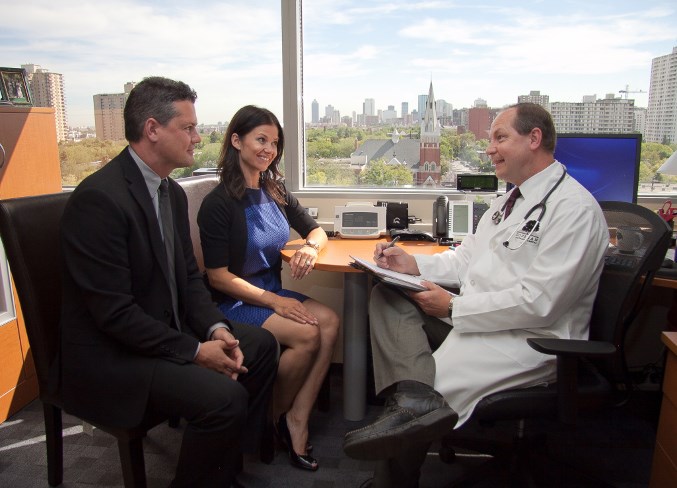Are you frustrated by long wait times to see your physician? Do you feel like your visits are rushed and never allow all your concerns to be addressed? Is a lack of follow-up causing uncertainty or confusion, or making you feel like your health isn’t a priority? Maybe it’s time to examine your healthcare and make a change. The following three tips from Dr. Glenn Keyes, of Copeman Healthcare Centre in Edmonton, will help put the “care” back into your healthcare. Work with your physician to grow a trusting relationship Research indicates that the better your relationship with your doctor, the greater the satisfaction with your care. It should be of vital importance, then, to find a physician that you trust. “Building a trusting relationship is just so important,” says Dr. Keyes. “A lack of trust and communication can lead to serious problems.” Building trust is a priority in establishing exceptional care, he adds, although he admits that developing a relationship with someone you see only sporadically — and often only briefly — can be difficult. “Trust is something that takes time,” he says. “It needs to be built and earned, and it’s something both parties need to be committed to. As physicians, we need to make sure we put in the effort to not only get to know our patients but allow them to get to know us, too. “Personally, I take the time to tell my patients about myself, like where I trained and my practice style, as well as more personal things like my interests or a little bit about my family. Fortunately, the Copeman model of healthcare allows for that extra time and attention.” From the other perspective, Dr. Keyes says patients need to be open, honest and upfront with their physician about what all their issues are. “And even though it may not sound like a big deal,” he adds, “we need to make sure we show up on time. That can really affect trust and how our attitudes toward each other develop.” Expect and insist upon clear communication Strong, clear communication with your doctor not only ensures you receive appropriate tests and treatments, it also helps avoid duplication of efforts. Dr. Keyes notes that effective communication is something that all patients should expect – and efforts should be made to ensure that’s the case. “There are a number of things that are built into the system here at Copeman Healthcare that help to ensure the communication lines are open. Because we work within a team-based methodology, there are at least three or four sets of eyes on every patient so things don’t get missed. “That collaboration isn’t limited to the dietitian, kinesiologist and family health nurse,” he notes. “It also includes the frontline staff who coordinate appointments. We’re all on the same page, working together to ensure there’s a clear understanding throughout a patient’s treatment. “In terms of what patients can do, they need to make sure they get all their concerns across. Say, ‘I’m worried about this,’ or ask, ‘What else do you think it could be?’ If you feel your doctor hasn’t asked you all the key questions, or answered all of yours sufficiently, say something.” Demand timely and well-executed follow-up Finally, says Dr. Keyes, follow-up needs to be timely and practical. “Your doctor should know you well enough that the follow-up treatments suggested are practical and achievable for you. Expecting someone to change their lifestyle habits overnight isn’t going to work with most people. “Ideally, doctors should get back to patients about tests promptly regardless of whether the results are positive or negative. The treatment or follow-up plan should occur quickly, not a couple of weeks later – that’s something else that sets Copeman Healthcare apart from other models.” Once again, he notes, this responsibility doesn’t rest solely on the healthcare provider. “Patients need to follow their doctor’s advice. If you disagree with the treatment plan, be clear about why. A good doctor will listen to your concerns and work with you to come up with other viable solutions. “For optimal healthcare, both sides need to be open, trusting and respectful of each other.” Are you ready to try a fresh, collaborative approach to healthcare? Contact Treena Popowich at [email protected] or visit www.copemanhealthcare.com




